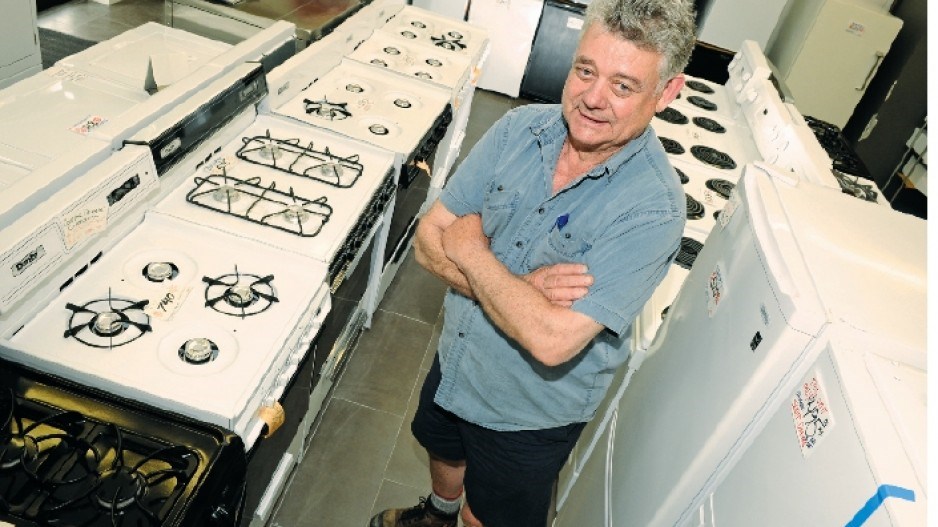After 48 years in the appliance business, Jack McIver has seen more than 100,000 customers purchase some sort of labour-saving device at his store, McIver's Appliances Sales & Service. And while he is a dynamo himself – still making home service calls when he's not on the floor himself – McIver has had a plethora of sales staffers over the decades.
"We don't really have a specific method to sales," said McIver. "Our business is our reputation. We have third-generation customers coming in today. We don't do a lot of selling; we're just presenting."
He avoids what he calls the "American business method: a store full of products and very aggressive salespeople."
He describes his own store on Vancouver's South East Marine Drive as sparse. McIver is definitely in the less-is-more camp when it comes to moving product.
"Our reputation is what makes us successful," he said. "We don't put any pressure on the customer. We'll even ask, 'Are you sure you want to do this?' Selling is like making sourdough bread. You only have to make it once, then you keep adding to it. It'll just keep going on its own."
Few are hired to work directly in sales. Training comes from working in the parts department and making service calls. Sales people have to know the products they are selling inside and out, said McIver.
"We want them to be highly knowledgeable about the appliances," he said, "and know nothing about BS."
Selling points
Sales consultant Howard Olsen knows exactly what McIver is talking about.
Olsen is principal of Vancouver-based High Output Training Systems. He might be taken for a motivational speaker – and he does some of that, often travelling to speak to gatherings at companies that include Blenz, Western Union, Remax and ScotiaMcLeod – but Olsen said he does more than motivate.
"I've been selling for 30 years," said Olsen. "And coaching my entire career. A company might have some great ideas and products, but not know how to sell them. They need a skill set or maybe they're afraid of seeming pushy or manipulative. They don't have the art of conversation down.
"If a company is looking for a better way to sell its services, I can help them learn, for example, non-manipulative sales techniques."
Olsen started High Output Training Systems eight years ago, originally concentrating on helping improve the marketing aspects of businesses. He said he has "two overarching ideas."
"First, people want to serve their customers. Will the customers allow that? Trust is so important. Three-quarters of closing depends on how you open. That's how trust is built.
"Second, everyone has a profound desire to be understood. The customer has to understand that you understand them. You've got to listen to the customer. And again, the customer has to have trust in you."
Olsen suggests some techniques for business owners: "Ask how you can help them. Are we the right fit for you? Can I ask some questions? This increases both relevance and understanding. Hopefully, the customer begins to trust you.
"Convincing someone to buy something; that's a traditional idea," said Olsen. "But it should not be a manipulative process. It should be two human beings who understand each other's perspectives and who come to a mutual understanding."
Hire power
Getting the right sales employee starts with the application process, according to Maria Mocnik, manager of the Purdy's chocolate shop in New Westminster's Royal City Centre. Mocnik has been with the company for 15 years and has a good amount of autonomy in her shop, including around hiring.
Mocnik said the process begins, obviously enough, with the job application form and resumé. Observing the would-be employee during the interview can tell you much about the person.
"Simple questions are important," say Mocnik. "I ask if they like working in retail, and why. What is their availability and so on. But you observe their body language, how they behave during the interview, how they are dressed. All these things matter.
"Previous retail experience can be a benefit," she said. "But no experience can also be an opportunity to mould them. They don't have bad habits to unlearn."
During the new employee's three-month probationary period, there is a fair amount of knowledge to be absorbed, said Mocnik.
"It's a long, ongoing process. Employees have to keep up with new products, as well as changes – such as new electronic tills. And they also have to learn the language of chocolate!
"The service part of the job is very important. We want employees to bend over backwards for the customer, to go the extra mile."
Training to work at Purdy's often includes one or two workshops at the head office in Vancouver as well as at the factory in order to understand the chocolate-making process.
McIver said his company was built on trust and an excellent reputation.
"If your knowledge shines through, you won't lose that business," said McIver. "A good reputation will hold on to customers."




